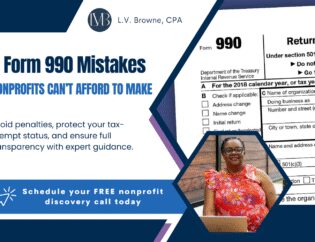As a U.S. citizen living abroad, tax season can be a confusing and challenging time. The United States has a unique tax system that requires its citizens to file taxes on their worldwide income, regardless of where they reside. This means that even if you’ve made your home in a foreign country, you’re still expected to file a tax return with the Internal Revenue Service (IRS).
Determine Citizenship Status
There are several ways you can be considered a U.S. citizen for tax purposes:
Birth in the United States: Individuals born in the United States are U.S. citizens, regardless of their parents’ tax or immigration status.
Birth Outside the United States with a U.S. Citizen Parent: If you were born outside the United States, you are a U.S. citizen if one of your parents is a U.S. citizen or if you have otherwise obtained U.S. citizenship.
Other Paths to Citizenship: If you have obtained U.S. citizenship through a method other than birth, you are still considered a U.S. citizen for tax purposes.
Tax Benefits for U.S. Citizens Living Abroad
Despite the complexities of filing taxes as a U.S. citizen abroad, there are several tax benefits that you may be eligible for:
Foreign Income and Housing Exclusions: You may exclude certain income earned overseas and exclude or deduct foreign housing expenses.
Foreign Tax Credit: You can claim a credit for income taxes paid to a foreign country.
Foreign Earned Income Exclusion: If you meet certain criteria, you may be able to exclude a portion of your foreign-earned income from U.S. taxation.
When to File Your Taxes
As a U.S. citizen living abroad, you’re allowed an automatic two-month extension to file your taxes. This means you have until June 17, 2024, to file your return if you meet certain criteria, such as living outside the U.S. with your main place of business or post of duty outside the country, or if you’re military or naval personnel serving outside the U.S. To take advantage of this extension, simply attach a statement explaining your situation to your tax return. Keep in mind that interest will still be charged on any unpaid taxes from the original due date.
If you need more time beyond the automatic two-month extension, you can file Form 4868 to request an additional six-month extension of time to file your return. This extension runs concurrently with the automatic two-month extension, giving you a total of eight and a half months to file your taxes. You can file Form 4868 by the original due date of your return or the extended due date if you qualify for the automatic two-month extension. Be aware, though, that interest and penalties may still be owed for unpaid taxes.
In some cases, you may be eligible for an additional two-month extension to December 15. This is a discretionary extension that must be approved by the IRS, so you’ll need to file Form 4868 and include a statement explaining why you need the additional time. This extension is generally granted to taxpayers who expect to meet the residency tests for the foreign earned income exclusion or foreign housing exclusion/deduction after their tax return is due.
If you anticipate meeting the residency tests for the foreign earned income exclusion or foreign housing exclusion/deduction after your tax return is due, you may qualify for an extension generally 30 days beyond the date you can reasonably expect to qualify. To claim this extension, you’ll need to file Form 4868 and include a statement explaining your situation.
How to File Your Taxes
There are several options available for filing taxes, including by mail, electronically, or with the assistance of a tax professional. Electronic filing is a widely adopted method, but it necessitates the use of an IRS-approved transmitter to ensure the secure and timely delivery of the return. It is important to note that certain forms, such as those requiring a signature, must still be submitted in paper format.
The IRS offers a program called Free File, which allows individuals who meet certain income requirements to file their taxes electronically without incurring any fees. However, it is essential to be mindful that the software providers and forms available may vary from year to year. To ensure timely processing of the return, it must be filed by midnight on the deadline, including any granted extensions, with acknowledgment of receipt by the IRS.
Knowledge is Your Passport to a Smoother Tax Season
Staying informed and knowledgeable about your tax obligations as a U.S. citizen abroad is essential for a smoother tax season. By understanding the rules, gathering the necessary documents, and seeking professional guidance when needed, you can minimize stress and ensure accurate tax filing. Remember, knowledge is power, and in the realm of international tax filing, knowledge is your passport to a smoother tax season.
Lakeesha V. Browne, CPA is here to help you navigate your tax responsibilities while living abroad. Contact her today or schedule a complimentary consultation and explore how she can assist you.
_____________________________________________________________________________________________________
Works Cited: “Filing and Paying Taxes for U.S. Citizens or Residents Living Abroad.” Taxpayer Advocate, Internal Revenue Service, 24 Apr. 2024, www.taxpayeradvocate.irs.gov/news/nta-blog/filing-and-paying-taxes-for-u-s-citizens-or-residents-living-abroad/2024/04/.










